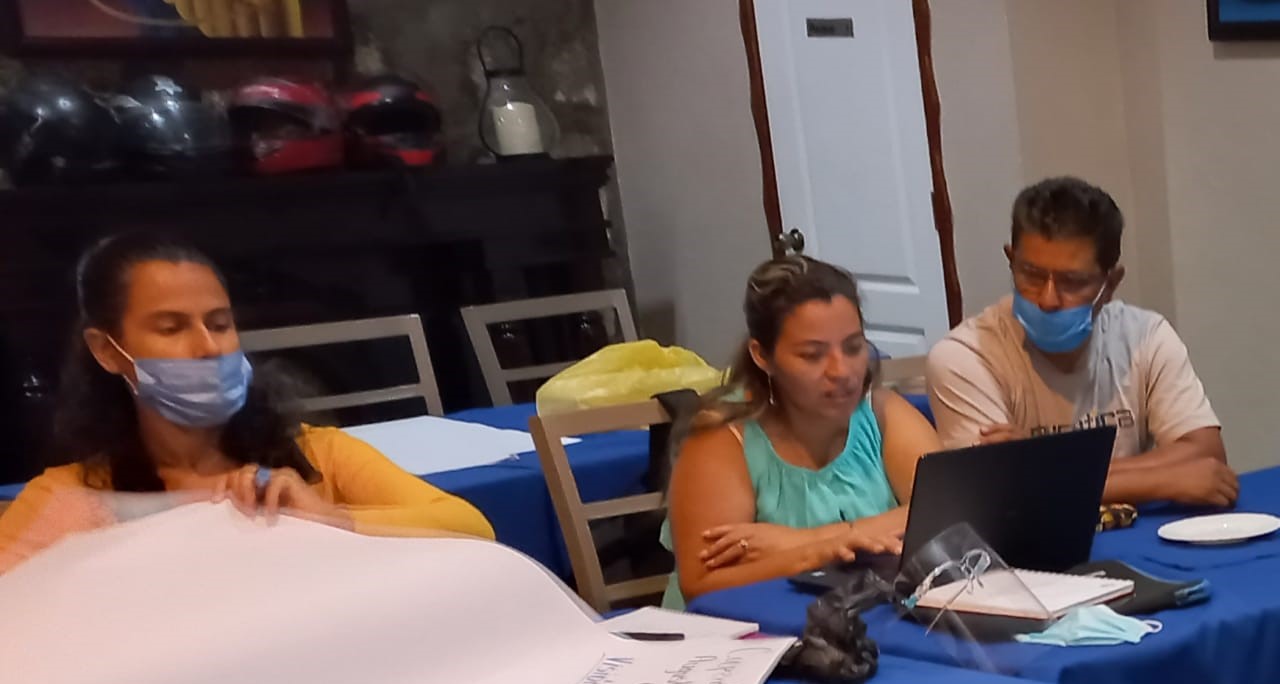Improvements made to management accounting spearheaded by PROCAGICA at Augusto C. Sandino Cooperative also supported the growth of other small coffee farmer associations in Matagalpa.

Nueva Segovia, Nicaragua, 21 May 2021 (IICA). By strengthening financial and credit management, the Central American Program for Integrated Coffee Leaf Rust Management (PROCAGICA) seeks to support the sustainability of a number of coffee grower cooperatives in the region. Exolina Aldana, President of Augusto C. Sandino Multisectoral Cooperative, is one of the beneficiaries.
“We have achieved great results, such as increasing the productivity of our associates’ coffee farms. Many of the program’s beneficiaries have managed not only to capitalize on developing their lands, but also to cancel debt they’ve carried for years”, explained Aldana, whose cooperative is in the community of Aguas Amarillas in the municipality of Tuma La Dalia, Matagalpa, in northern Nicaragua.
Approximately 60% of the cooperatives associated with PROCAGICA use pooling methods and support the sale of coffee of their associates. This makes it essential for each one to improve their financial management and easy-access credit services to increase sales volumes.
One of the processes promoted by the program is to define the key services that the cooperative could offer, which would help to strengthen their business and organizational management and characterize the credit services provided.
Among the actions to improve the financial management of farming organizations, based on the expertise of each cooperative, is to prepare a handbook with roles and functions to help improve the placement and collection of capitalization funds, as well as to improve policies and update records.
PROCAGICA has provided financial management training to cooperative directors, who now have the ability to evaluate, design, and implement processes. They were also shown how to correctly use the tools to define concrete actions and improve credit services, starting with the production inputs facilitated by the program as the basis for the revolving fund, a financial mechanism also intended to help pay unexpected and urgent expenses.
Exolina Aldana also mentioned the importance of internal control and follow-up processes.
“The accountability mechanisms we’ve used with the cooperatives are periodic meetings of the Board of Directors and General Assemblies, who report to the associates. We are also improving the financial statements, combining the reports of the different levels as an alternative to allow farmers—whose level of education often hinders their understanding of the financial statements—to interpret the cooperative’s income and expense information, as well as acquisitions and collections, and to inform other levels for decision-making”.
These spaces also allow for alliances between the cooperatives as a fundamental part of developing financial and credit management.
“It’s a good opportunity and, as such, we hope to develop strategies to continue providing the same assistance to farmers, not only for those who participated, but also for those who were not directly benefited by the program so that they can support each other within the cooperative”, added Aldana.
The Central American Program for Integrated Coffee Leaf Rust Management (PROCAGICA), sponsored by the European Union and implemented by the Inter-American Institute for Cooperation on Agriculture (IICA), aims to improve the production and living conditions of small coffee farmers in Central America and to contribute to solving problems related to climate change and the environment.
More information:
Institutional Communication Division
comunicacion.institucional@iica.int











